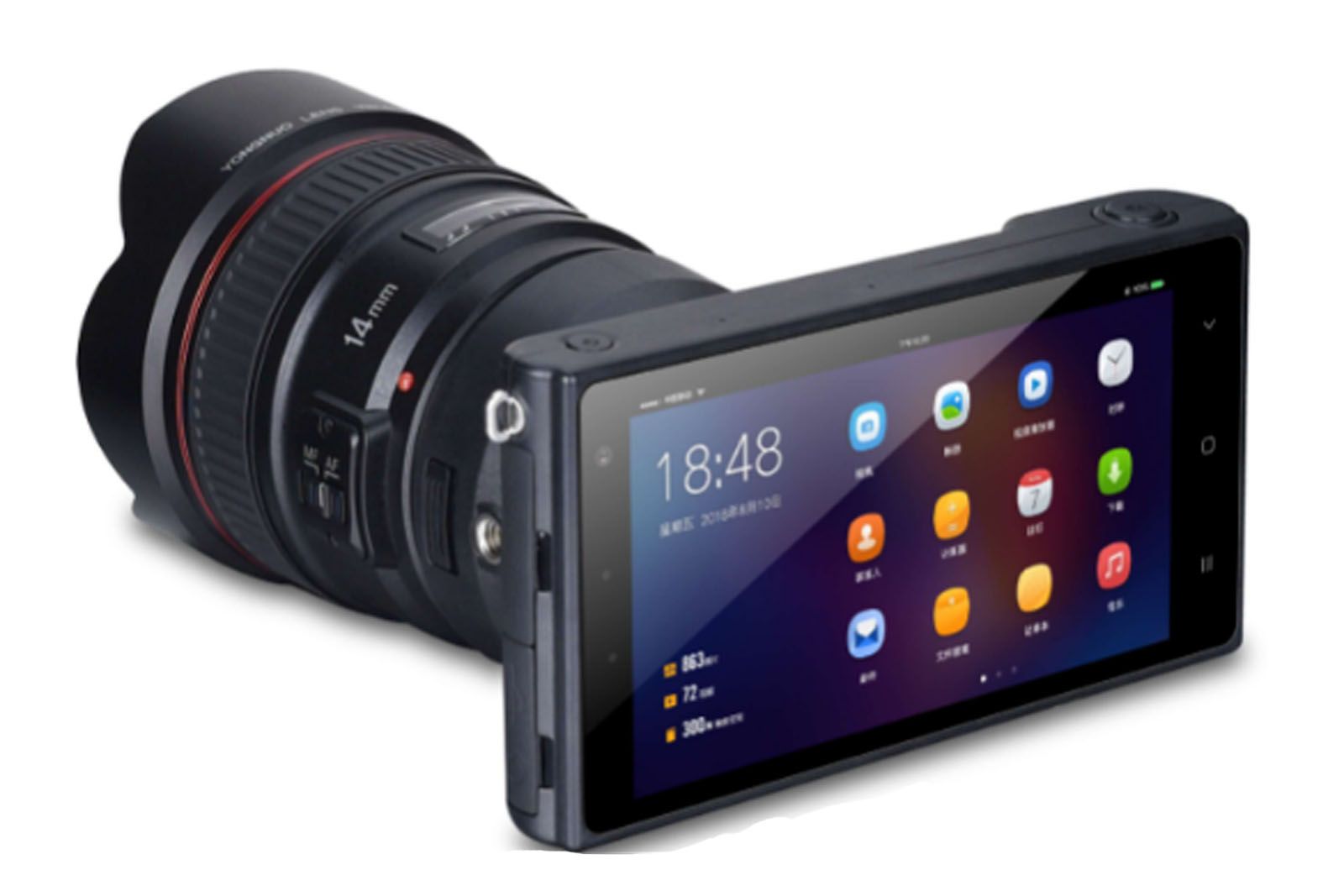Camera accessory make Yongnuo wants to disrupt the status quo, teasing a forthcoming Android-powered camera that will support a Canon EF mount lenses.
The idea would be that you use your existing glass, but ditch the Canon body in favour of Yongnuo's Android device, for a slimmer and lighter package that's fully connected and can, presumably, let you play Angry Birds while you're waiting in your hide for that lesser spotted woodpecker to appear.
The company has revealed some basic specs for the device, including a Panasonic micro four-thirds 16-megapixel sensor for the rear camera. It hasn't been explicitly stated, but we assume there's an adapter - in fact you can see one in the image from Yongnuo that also appears to have a tripod mount on it.
Exactly what control the device will have over the lenses remains to be seen, but RAW support is mentioned, as is the presence of dual LED flashes. We doubt that would do anything other than cast a shadow from the lens on the front.
There's support for video capture at 4K/30fps.
For those wanting selfies, there's an 8-megapixel front-facing camera and a full spec smartphone basically strapped to the back. There's a 5-inch 1080p display, support for 4G, GPS, a headphone socket and a 4000mAh battery, which is pretty big, for a phone.
There's 32GB of internal storage - some of which the Android 7.1 operating system will consume and support for SD cards up to 32GB - which isn't really very big in comparative terms.
Smartphone fans will probably hear alarm bells ringing when they see Android Nougat is the OS of choice, but it's likely to not offer Google services, it's probably just the platform for running a custom UI, so the version of Android likely doesn't matter (the same thing happens in cars, terminals, all sorts of things).
It's not the first time that the Android camera has been attempted. Samsung had a Galaxy Camera, which was essentially a compact camera with zoom lens. It was ok as a camera, but ultimately compact cameras fell into decline as people just started using their phones.
The question is: would you use this device rather than something designed only for taking photos, like the Panasonic Lumix GX800, which is also nice and compact?

